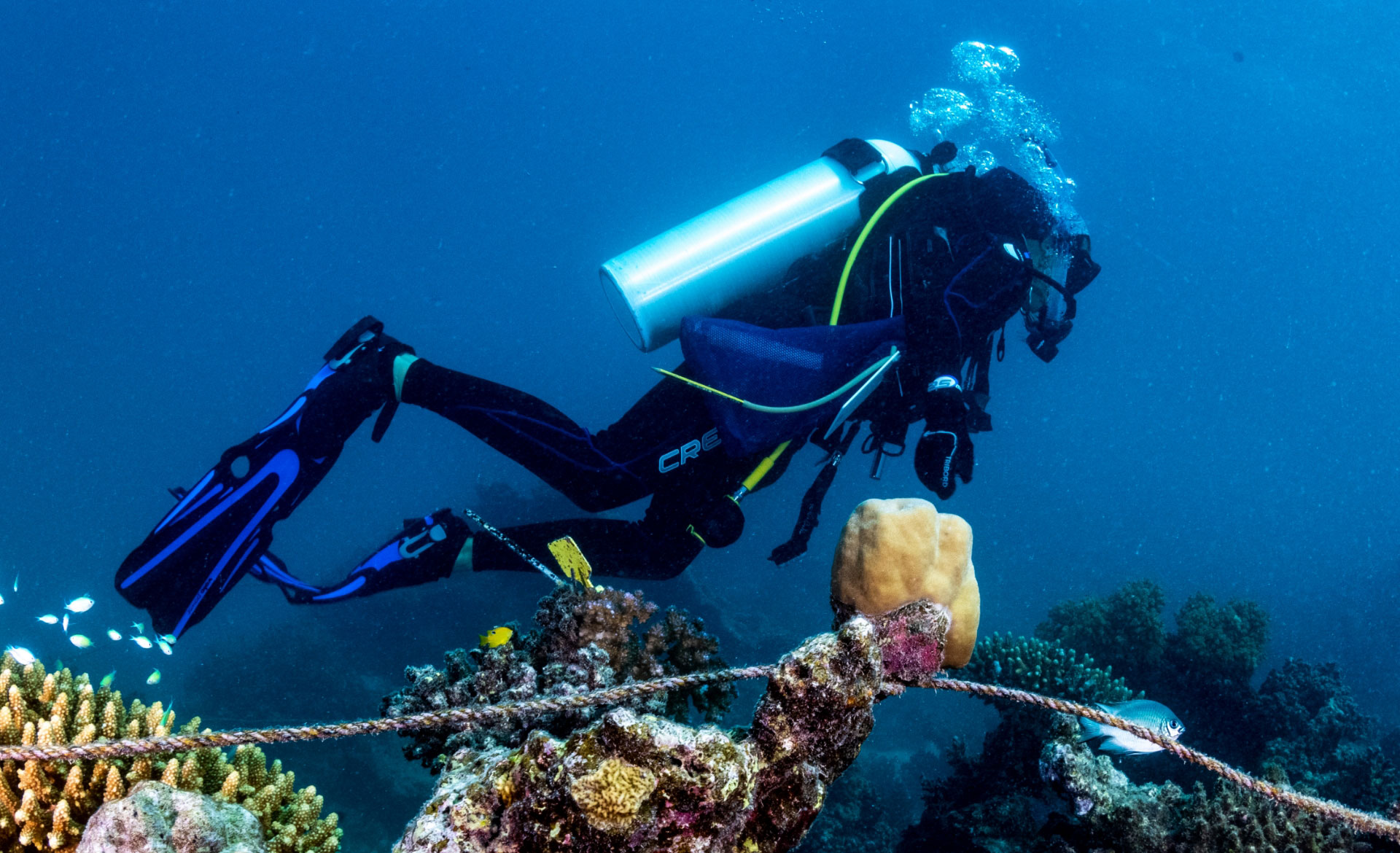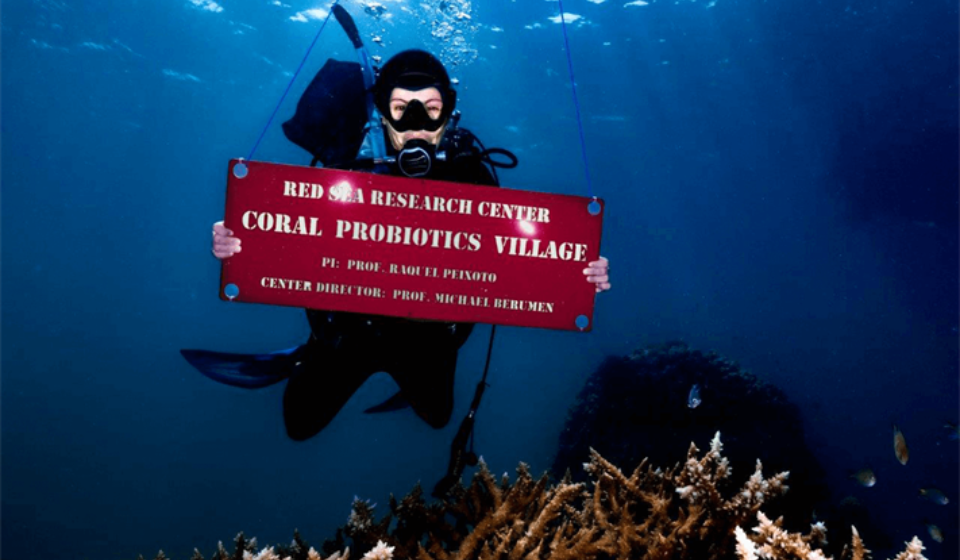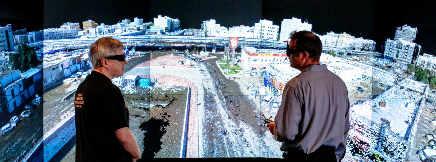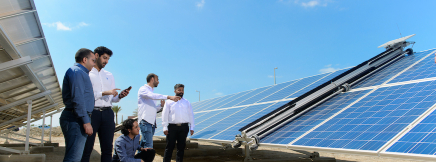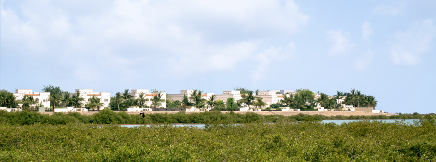As a living lab, KAUST researches, funds, tests, and implements in-house sustainable technologies while welcoming external collaborators and other stakeholders to participate in this rich ecosystem.
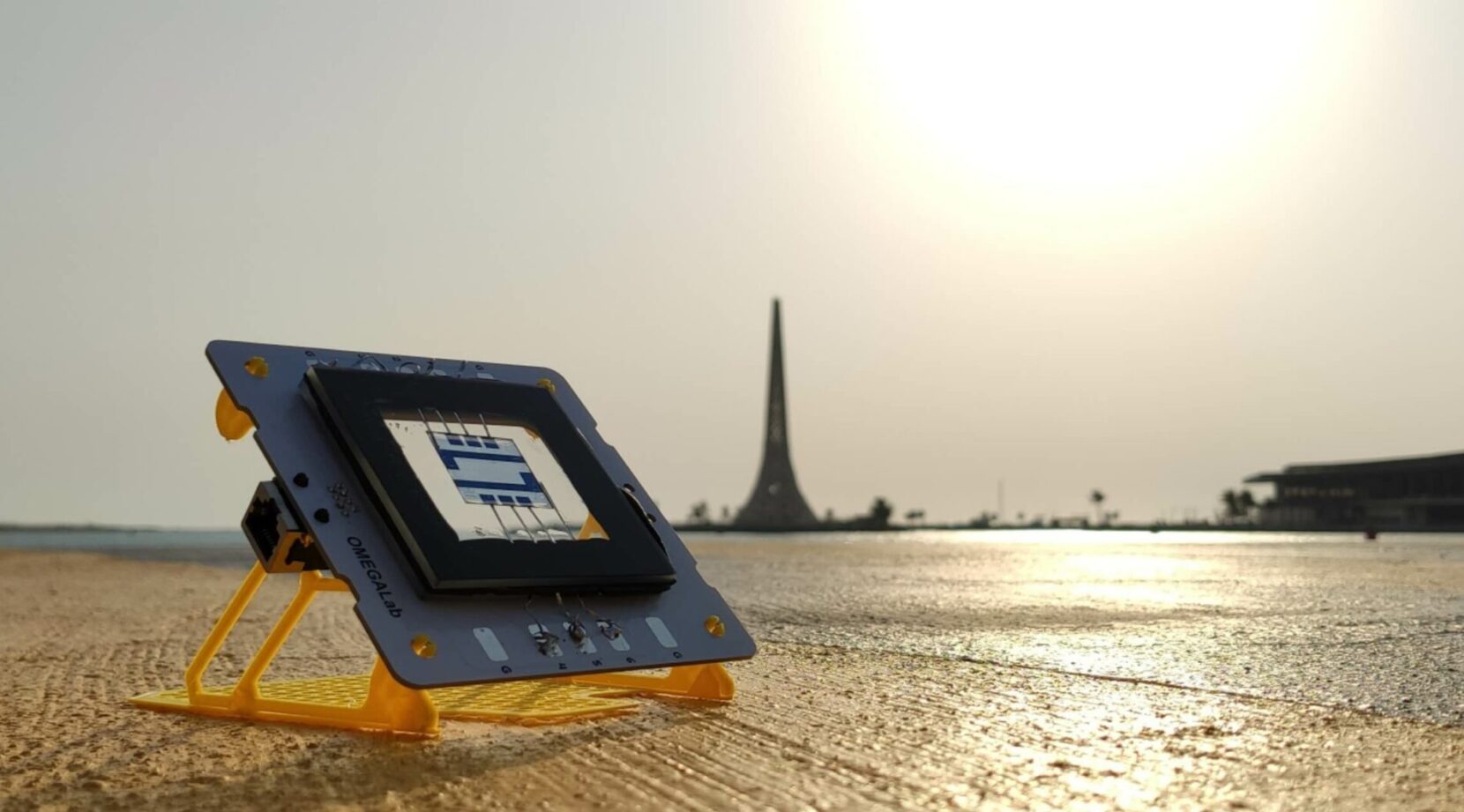
A TESTBED FOR RESEARCH AND INNOVATION
Our campus serves as a dynamic testbed, harnessing the power of applied research to address real-world sustainability challenges. At KAUST, we leverage our unique campus and community ecosystem, defined by its controlled, small-scale urban setting, to incubate innovative ideas and market solutions. We aim to model sustainable solutions that can be scaled up to benefit larger city systems, creating a bridge between academic research and tangible, sustainable operations and thus integrating sustainability into every facet of our lives and surroundings.
SUSTAINABLE FOOD SOLUTIONS THROUGH ALGAL BIOTECHNOLOGY
“Development of Algal Biotechnology in the Kingdom of Saudi Arabia” (DABKSA) project is a collaboration between KAUST and the Ministry of Environment, Water, and Agriculture (MEWA). Hosted at the KAUST Research and Technology Park, DABKSA leverages microalgae’s ability to consume pollutants, and thrive in seawater to achieve new strides in algal technologies, offering an eco-friendly solution to biomass production for animal feed.
ADVANCING GEOTHERMAL FRONTIERS
In collaboration with TAQA Geothermal Energy Company, KAUST is initiating a groundbreaking project on geothermal energy by drilling a 400 m deep observatory and monitoring well on its campus, to gather vital data to inform future geothermal wells.
REVOLUTIONIZING CAMPUS TRANSIT
The Sustainable Green Hydrogen Mobility Platform with its state-of-the-art high-capacity hydrogen compressors and extensive storage facilities, aims to electrify the campus transportation system by converting all buses to run on green hydrogen, significantly reducing carbon emissions.
A BACKYARD SEA AS AN OPEN LAB
In a novel approach to coral preservation and restoration, KAUST opened in 2021 the world’s first coral probiotic village, in the Red Sea. The RSRC Coral Probiotics Village is a permanent natural laboratory designed for coral reef research. Learn more about this research here.

